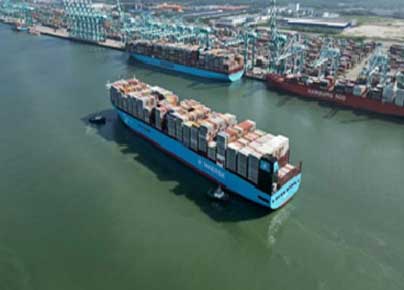Maersk Eyes Up to 60 New Dual-Fuel Ships to Match Fleet Renewal Pace
2024-08-09

A.P. Moller Maersk has announced plans to sign new building orders and time-charter contracts for dual-fuel vessels, aiming to match its planned renewal pace of around 160,000 TEUs annually.
As disclosed, these orders continue Maersk's fleet renewal program initiated in 2021. The orders will include 50-60 containerships, combining owned and chartered dual-fuel vessels, equaling 800,000 TEU. Approximately 300,000 TEU will be owned capacity, while the remaining 500,000 TEU will be through time-charter agreements. The announcement followed Maersk's financial results for the second quarter of this year. The Company reported a profit of $623 million in Q2 2024, compared to $1.3 billion in the same period last year. The 52% profit drop was attributed to several factors, including macroeconomic conditions, bunker fuel prices, freight rates, and disruptions in the Red Sea.
"Our results this quarter confirm that performance in all our businesses is trending in the right direction. Market demand has been strong, and as we have all seen, the situation in the Red Sea remains entrenched, which leads to continued pressure on global supply chains. These conditions are now expected to continue for the remainder of the year," commented Vincent Clerc, CEO of Maersk.
In line with its commitment to decarbonization, Maersk revealed that all new units will be dual-fuel, intending to operate them on low-emissions fuel. Maersk has chosen a mix of methanol and liquified gas dual-fuel propulsion systems to ensure the fleet's long-term competitiveness and ability to meet decarbonization goals. In 2021, Maersk ordered the world's first methanol-enabled container vessel, following a commitment to only order newly built vessels that can sail on green fuels. When running on methanol at sea, the feeder saves up to 100 tons of CO2 daily compared to conventional fuel. The impact of fuels on greenhouse gas is reduced by about 65% compared to traditional fuels, with the potential to reach up to 95% depending on methanol production methods.
Maersk has set a net-zero greenhouse gas emissions target for 2040 across its entire business and ambitious near-term targets for 2030. Once delivered, around 25% of the Maersk fleet will have dual-fuel engines.









